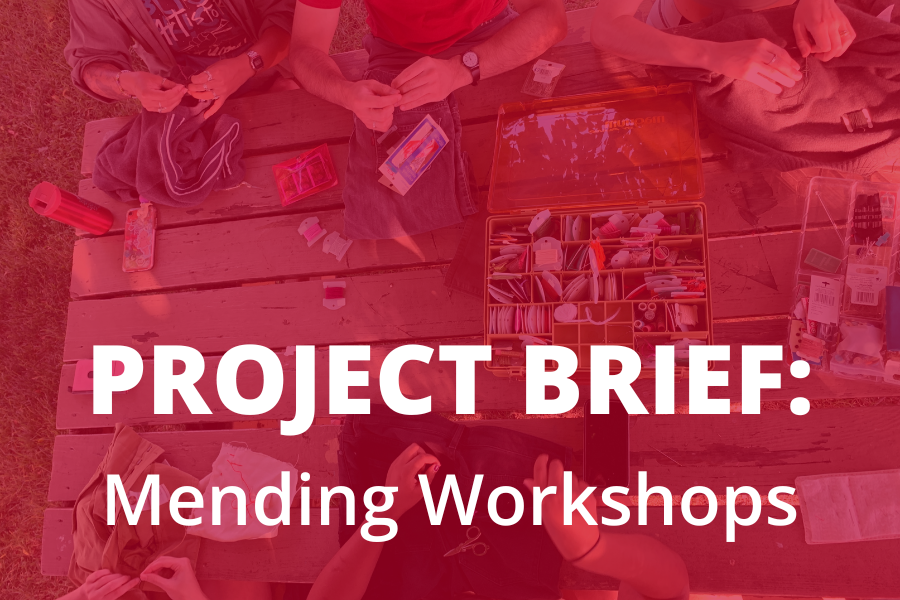
Project Brief: Mending Workshops
By Sarah Elizabeth Bender
Students enrolled in IDeATe classes have unique opportunities to channel a variety of technology and arts skills into complex, interdisciplinary projects. But for Fifth Year Scholar Katrina D'Arms, it wasn’t enough to explore the intersection of sewing and sustainability during class. She wanted to spread knowledge about how to reduce consumption through mending even further, one old pair of pants or torn backpack at a time.
In this project brief, D’Arms shares details about her popular mending workshops, which empower the CMU community and beyond to keep damaged clothing out of landfills and get more use out of their favorite outfits.
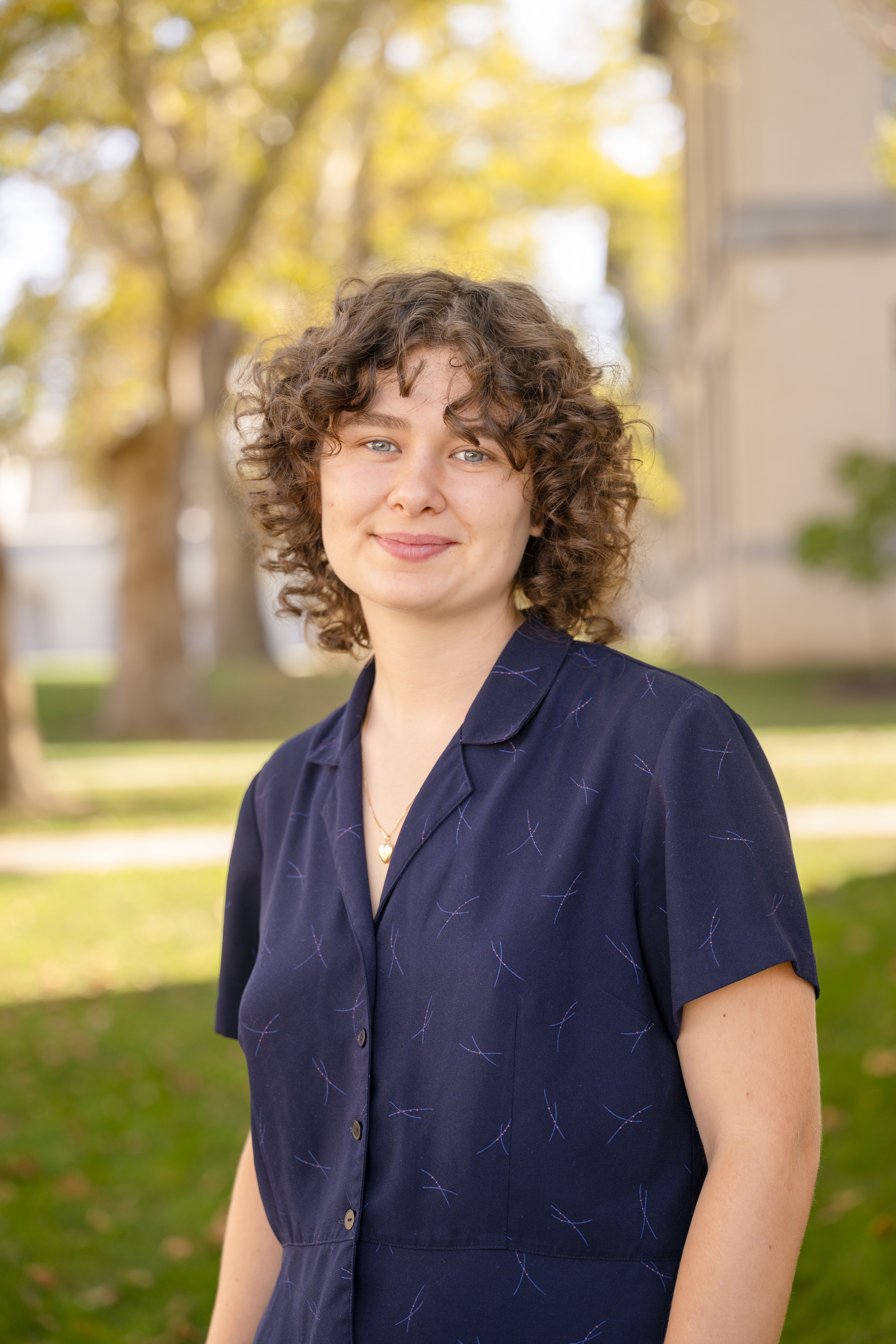 Give us an overview of the mending workshops you lead for CMU and the Pittsburgh community.
Give us an overview of the mending workshops you lead for CMU and the Pittsburgh community.
I had been working at the TechSpark makerspace since sophomore year, and when I was a junior, one of my friends came in to fix her backpack and a pair of pants. TechSpark had sewing machines, but nobody really knew how to use them — I had learned sewing off of YouTube, though, so I was able to help her with the repairs.
I realized that a lot of people weren’t prepared to mend things on their own — if you don’t have a lot of time, or you have items you really care about, then you don’t want to be rushed and accidentally ruin your clothes even more. So I started running mending workshops — people would come in with a bunch of random stuff, and together we’d bring it back to life.
I soon began having workshops in IDeATe spaces as well, and then turned the workshop into a StuCo class. Through this class, I was forced to formalize my learning a little more. I had to make a syllabus of different lessons, and wanted to incorporate various official techniques I hadn’t really learned yet — like darning, for example. Over the summer, I continued doing the workshops in off-campus spaces like Trace Brewing and the Carnegie Libraries of Pittsburgh.
How did you become involved with IDeATe? How did your IDeATe experience lead to the evolution of the mending workshops?
The first IDeATe class I took was the Culture of Color class about natural dyes. As an environmental engineering student, I was interested in sustainability, and I had been sewing since I was a kid, so it was a perfect combination of my interests. As an engineering major, I also didn’t have a ton of time, so I only had room to take one class each semester that was for fun. I wanted to do something artistic, but less intense than a studio art class. So I enrolled in Culture of Color, and I loved it!
Over time, I continued to take soft technologies classes — Intro to Textile Media, where I got to weave, spin thread, and felt, and another class where I got to explore computational thinking through weaving. By using weaving robots to make new patterns, I got an actual visual sense of how matrix multiplication works in a physical way, and it helped me better understand the linear algebra I needed for my major.
As my mending workshops have evolved, IDeATe has offered me space to grow, as well as the ability to store supplies for my classes. The Soft Technologies Studio is totally unique, and it draws people in. Even something like the document camera is incredibly helpful — it offers a way to give sewing demos, to show a big group of people how to do something very small.
I’ve also had a ton of help from Academic Coordinator Ryan McKelvey, who has even invited me to multiple end-of-year symposiums so I can share my project with a wider audience. I really appreciate those opportunities for additional exposure and everything he’s done to help my workshops succeed.
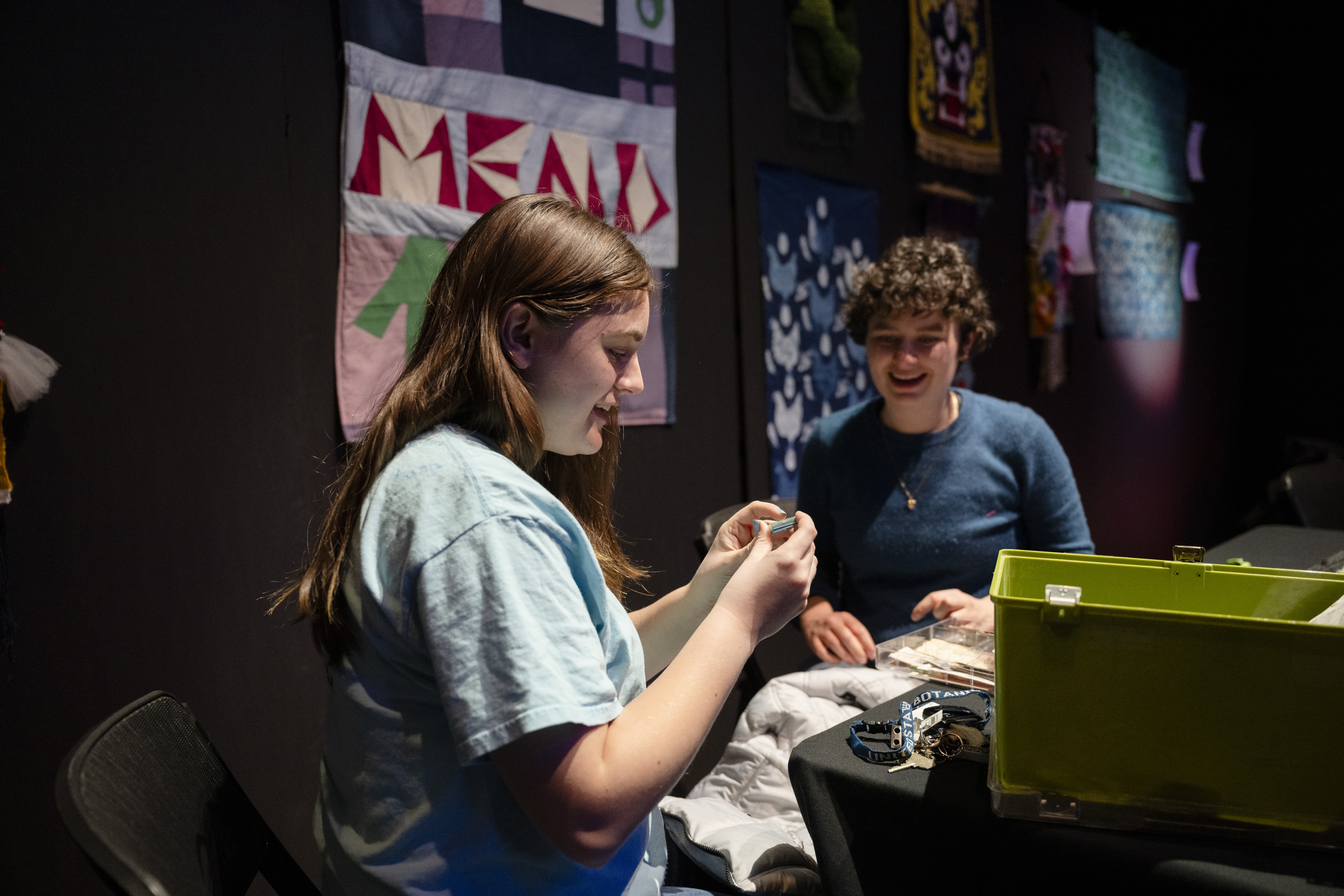
You received a bachelor’s in environmental engineering from the College of Engineering in the spring of 2024. Why did you decide to apply for the Fifth Year Scholar program and remain on campus an additional year?
The Fifth Year Scholar program is an amazing opportunity for people who have intellectual curiosity about things they haven’t been able to explore over their initial four years at CMU — you get a free year, with your tuition paid and an additional stipend, to work on a service project and explore different interests. I feel really lucky to have gotten an extra year to take the classes I didn’t have time to take other semesters. I’ve been able to explore fiction writing, game design, weaving, yoga, and psychology. Last semester I took a psychology course taught in SCI Somerset as part of the Prison Education Project, and also learned about the history of environmentalism — which really complimented what I’d learned in engineering about the environmental movement.
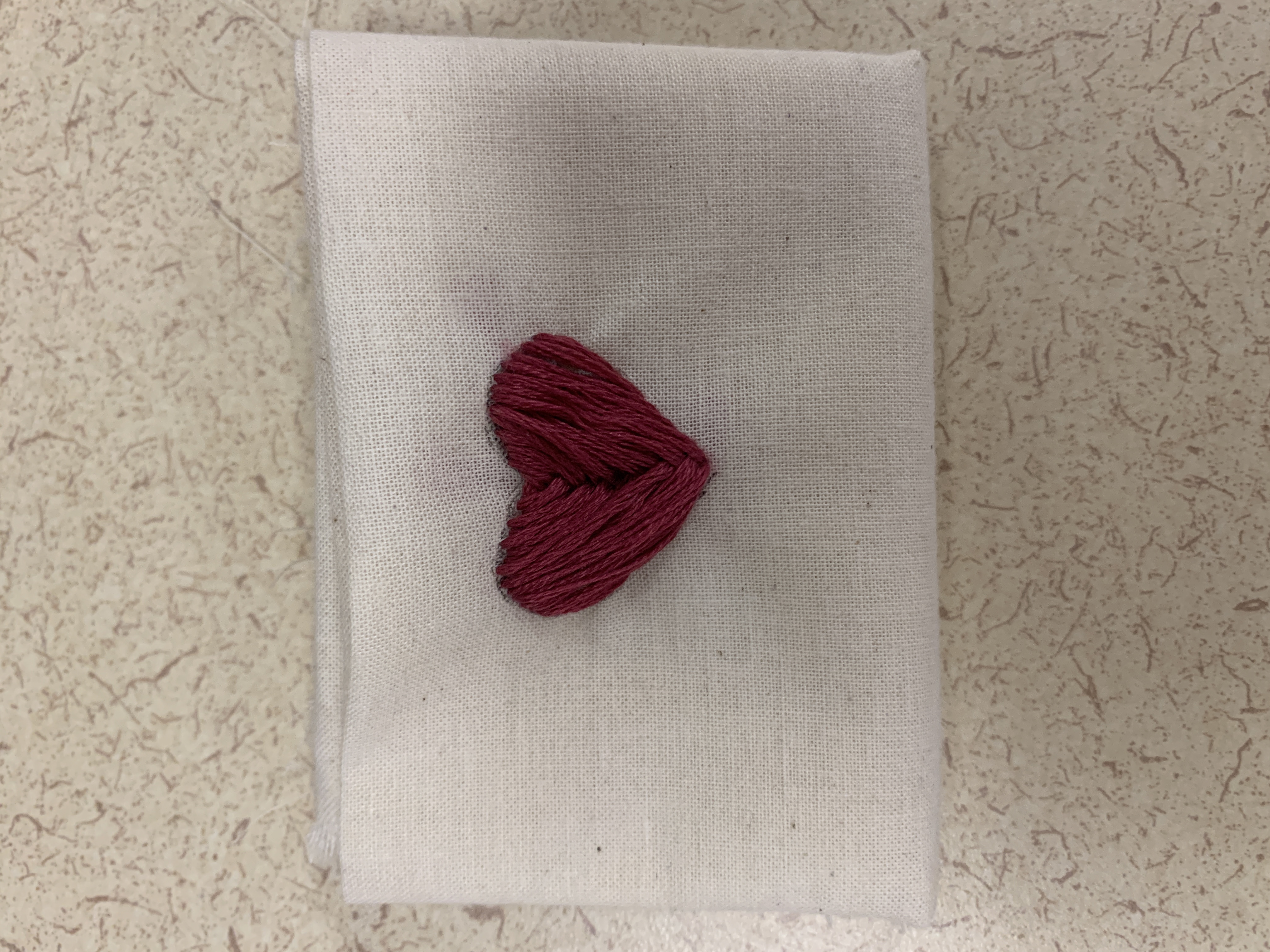 For the service project aspect, I chose to extend my mending workshops and continue to grow both in how I help others, and the things I’m able to do myself. I’ve developed my own mending style and started to explore visible mending, which I love. Any time you’re wearing clothes, they say something about who you are. And when you can see visible mending on a piece, part of what that’s saying is that you want to show care for garments beyond their first life. I even got a grant from the Steinbrenner Institute for Environmental Education and Research, which has enabled me to provide even more materials that allow people to be creative in unique ways. It’s really uplifting to see people who really do care about their things and the way they impact the world around them.
For the service project aspect, I chose to extend my mending workshops and continue to grow both in how I help others, and the things I’m able to do myself. I’ve developed my own mending style and started to explore visible mending, which I love. Any time you’re wearing clothes, they say something about who you are. And when you can see visible mending on a piece, part of what that’s saying is that you want to show care for garments beyond their first life. I even got a grant from the Steinbrenner Institute for Environmental Education and Research, which has enabled me to provide even more materials that allow people to be creative in unique ways. It’s really uplifting to see people who really do care about their things and the way they impact the world around them.
What’s next for you after you leave CMU? What do you think you’ll take with you from IDeATe as you move on to the next stage of your life?
I’m moving to Minneapolis, Minnesota to join an engineering rotational program with the Department of Transportation. But in addition to that, I want to keep running mending workshops for the community as a hobby.
I don’t want to monetize the experience or anything like that — instead, I view it as a way to give back to the community. It’s a pretty unique set of skills to offer people, and it’s uniquely helpful, too. It’s also a great way to meet people, and an opportunity to work with people who aren’t engineers. Communicating with people who have different backgrounds — whether that’s academically, intellectually, or interest-wise — is so important when it comes to understanding the different skills they can offer versus what I can offer, and how the combination of those can create a successful team.
As for my StuCo class — I’m passing that down to two first-year students, so it will continue even when I’m gone!
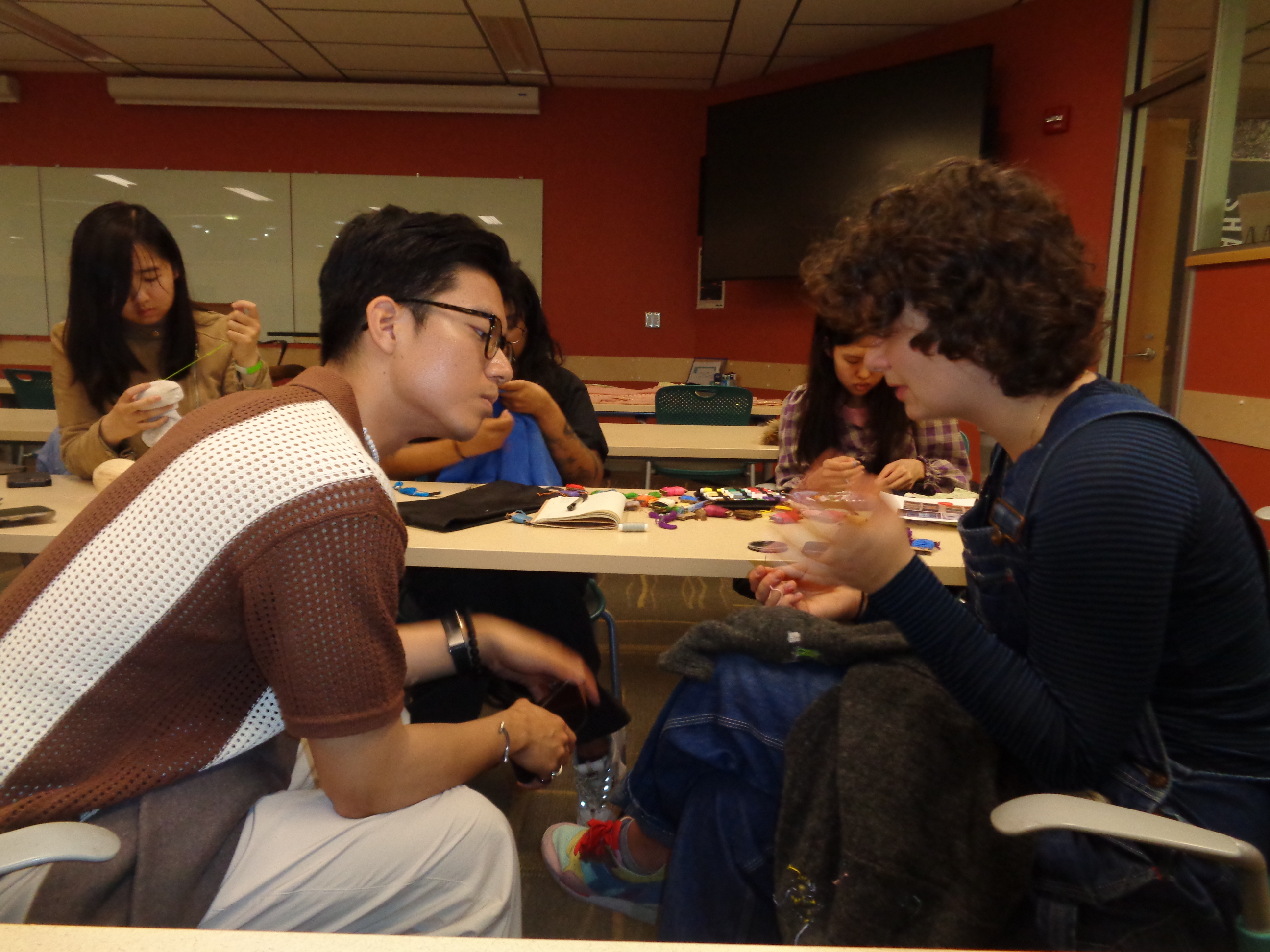
While D’Arms’ mending workshops have ended for the semester, keep up with her future mending projects on Instagram @mendwithkat. For mending opportunities around Pittsburgh, check out Repair Café Pittsburgh, which meets the first Saturday of every month at Construction Junction. New TechSpark Mending Hours will also be announced next fall.